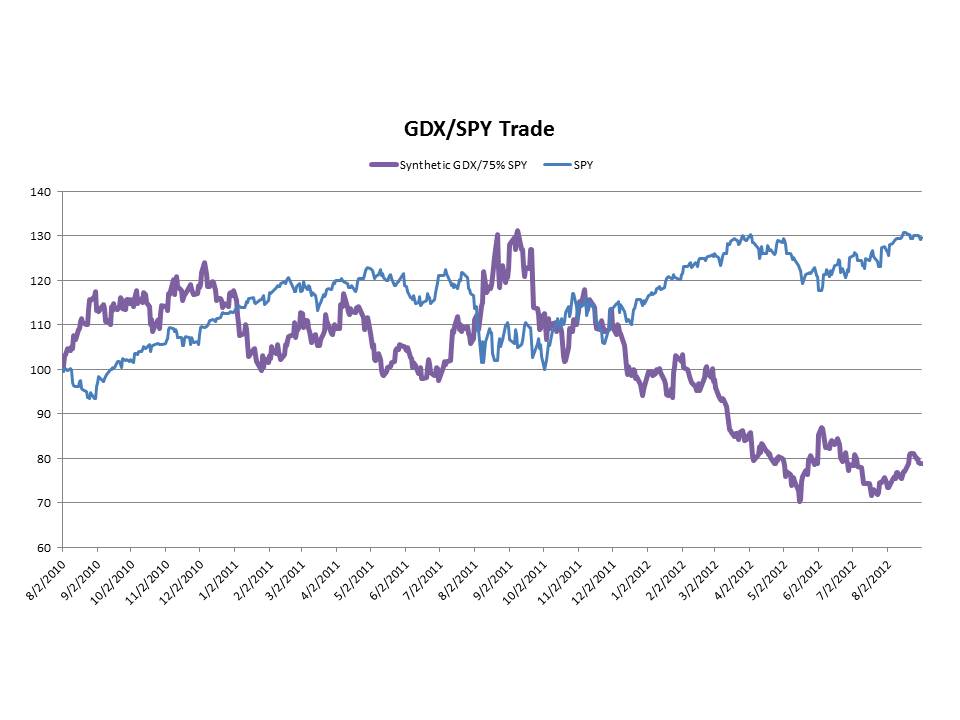Volatility (as defined by the VIX) has been trending lower, as the many sources of bad news fail to get any worse and confiscatory interest rates relentlessly push investors into the water. Investors are searching for ways to bet on it rising again – a tricky concept to get right. As investors climb the wall of worry through buying stocks they push down levels of implied volatility in the process.
Bonds are without doubt guaranteed both to return your money and to reduce its purchasing power. It’s a Faustian bargain readily accepted by many, and yet the pessimist would say you can lose money quickly (in stocks) or slowly (in Bonds). Without dismissing such fears, I’d simply say that figuring out how much of the bad news in the the overall level of the market isn’t something that we spend an inordinate amount of time on. Better to focus on companies that can survive the bad things that may come and can prosper if everything turns out not quite so awful.
In our Deep Value Equity Strategy we’ve made a few modest changes over the past couple of weeks. We have net raised a bit of cash, mostly through trimming positions that had grown too big rather than through any darkening top-down view of the world. We reduced our position modestly in Comstock Resources (CRK). We still like the natural gas theme and CRK is making the right moves, repaying their revolver with $300MM of long term debt maturing in 2020 (incurred following their purchase of properties in west Texas) and continuing to shift their capex to oil while natural gas prices remain weak. They also announced a partnership with KKR sharing their development risk in their Eagle Ford shale. About a year ago BHP Billiton acquired Petrohawk (HK), in whom we were invested, at a 60% premium but more recently had to take a writedown on the shale gas assets then acquired. Floyd Wilson, then Petrohawk’s CEO, always said he wanted to sell the company and showed timing of a similar order to Steve Case (AOL to Time Warner) or brother Dan Case (H&Q to JPMorgan) with that move.
But it’ll be a while before CRK realizes the value in its portfolio through being acquired, and daily volatility of 5 times or more the equity market caused us to trim this back somewhat. We maintained our energy exposure with an investment in Kinder Morgan Inc., (KMI), which owns most of the GP for Kinder Morgan Partners (KMP).
We invested in Leukadia (LUK), a holding company with a fairly eclectic portfolio of businesses that has been trading at a discount to book value for some time and recently dipped when Knight Trading (KCG) almost bankrupted themselves through a poorly debugged trading program. LUK owns a portion of Jefferies (JEF), and no doubt traded down in sympathy at that time.
We’ve also invested in Burger King (BKW), which recently started trading in the U.S. following an investment by a UK SPAC called Justice Holdings and controlled by Bill Ackman. BKW is in the midst of a turnaround, and generates about $1.1MM per year from its restaurants, far less than its peers in the Quick Serve Restaurant (QSR) industry such as Wendy’s (WEN) at $1.4MM or McDonalds (MCD) at 2.4MM! We also own MCD in our Hedged Dividend Capture strategy.
Finally, we sold some of our position in Kraft (KFT) as it broke through $40. Kraft will split into two in October and we still think it’s a good investment but no longer worthy of a maximum position at current prices.
We watched the JCPenney earnings webcast with interest last week. We have around a 4% position in JCP – although we began accumulating the position over a year ago (after CEO Ron Johnson had joined the company but before he assumed his high profile CEO role). In a spectacularly wrongheaded move earlier this year we neglected to take profits when it reached $40, so convincing was the smooth yet inspiring Ron Johnson in his investor presentation. It was a missed opportunity as the stock proceeded to lose half its value through collapsing sales as the transformation of JCP proceeded not altogether smoothly. We’ve neither bought or sold JCP for several months, and will likely do nothing for quite a long while. If they can truly pull off the change they’re projecting then the company will be worth substantially more, and in the meantime they have enough cash and cash generating capability to provide time. We’re going to wait this one out.
